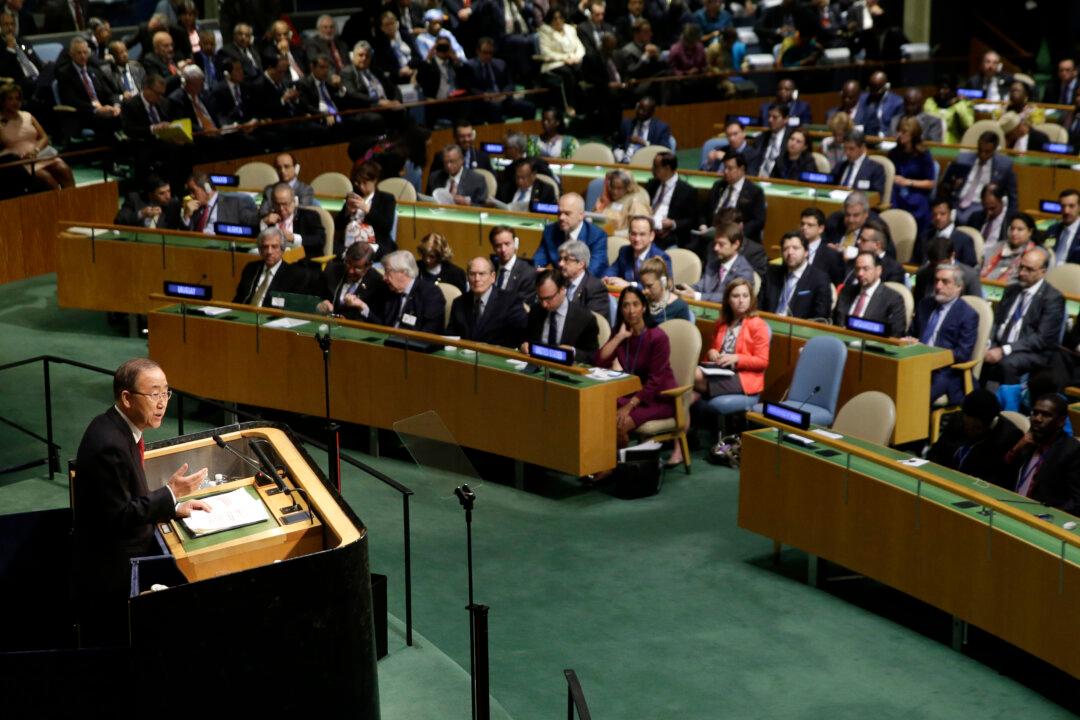UNITED NATIONS—The U.N. secretary-general for the first time called Monday for the situation in Syria to be referred to the International Criminal Court, as world leaders including President Barack Obama and Russian President Vladimir Putin were addressing a global gathering with conflict at center stage.
Ban Ki-moon’s state of the world address to leaders from the U.N.’s 193 member states came shortly before Obama, Putin, Chinese President Xi Jinping and Iranian President Hassan Rouhani were to speak to the U.N. General Assembly in the morning session alone.
The U.N. chief insisted on a political solution to the conflict in Syria, now well into its fifth year with more than a quarter of a million people killed.
Ban said five countries “hold the key” to a political solution to Syria: Russia, the U.S., Saudi Arabia, Turkey and Iran. He said “innocent Syrians pay the price of more barrel bombs and terrorism” and there must be no impunity for “atrocious” crimes.
The Syrian conflict is “driven by regional powers and rivalries,” Ban said. On the sidelines of this week’s meeting, leaders and diplomats from the major players are trying to address them.
Other crises at the center of discussions include the related refugee and migrant crisis, the largest since the upheaval of World War II.
Ban warned that resources to address these crises are dangerously low. “The global humanitarian system is not broken; it is broke,” he said. The U.N. has just half of what it needs to help people in Iraq, South Sudan and Yemen, and just a third of what’s needed for Syria.





